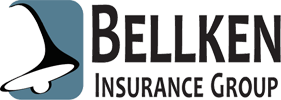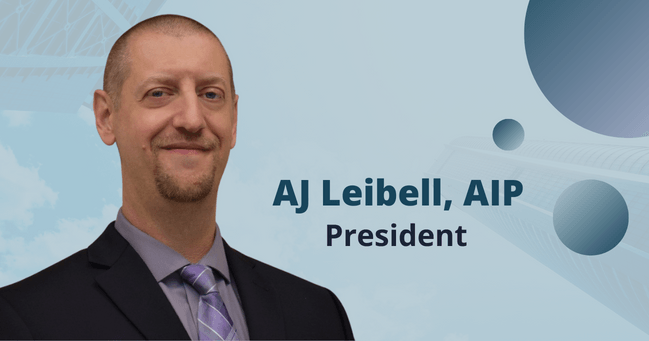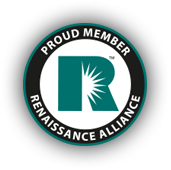Florida Landscaping Business Insurance
8:30am - 5:00pm Mon-Fri
Will Reply in 15min*
Top Recommended Business Insurance Policies

Index
Why Insurance Matters More in Florida
Core Insurance Policies Every Florida Landscaper Should Consider
Florida-Specific Hazards That Influence Coverage Decisions
Cost Breakdown: What Landscaping Firms Actually Pay
Real-World Claims Scenarios from Across the State
Selecting the Right Carrier and Agent
Lowering Premiums Without Sacrificing Protection
Contact Us
Phone
Location
6900 Tavistock Lakes Blvd, Suite 400, Orlando FL 32827
The lush lawns and vibrant gardens that define the Sunshine State rarely happen by accident. Landscaping companies invest thousands of dollars in equipment, work in unpredictable weather, and routinely interact with homeowners’ property. Every mower blade, fertilizer spreader, and trailer journey carries financial risk. Insurance is the safety net that keeps those risks from turning into business-ending losses. This guide breaks down the coverage options, legal requirements, and cost factors unique to Florida so landscaping owners can protect profits as carefully as they manicure turf.
Why Insurance Matters More in Florida
Florida’s landscaping sector has grown roughly 9% per year since 2020, according to the Bureau of Labor Statistics, and now supports more than 75,000 service providers from Pensacola to Key West. High demand creates opportunity, yet the same conditions that nurture palm trees—heat, humidity, and a six-month hurricane season—magnify exposure to accidents and property damage. A single tropical storm gains headlines, but day-to-day hazards such as slip-and-fall injuries or mower-thrown debris account for most liability claims. Without adequate coverage, even a modest injury settlement can wipe out a season’s profit. The stakes are particularly high in Florida, where the combination of unpredictable weather patterns and a bustling tourism industry means that landscaping businesses must be prepared for a wide array of challenges, from sudden storms to the increased foot traffic during peak tourist seasons.
Customer Expectations and Contract Requirements
Homeowners’ associations and commercial property managers increasingly require proof of liability insurance before awarding maintenance contracts. Carrying a comprehensive policy therefore doubles as a marketing advantage. It signals professionalism to clients, lenders, and vendors, demonstrating that the company can shoulder responsibility for its work. Furthermore, as the competitive landscape continues to evolve, businesses that can showcase their commitment to safety and risk management through insurance are more likely to win contracts against rivals. This not only enhances their reputation but also fosters trust among potential clients, who are often looking for reassurance that their properties will be cared for by a responsible and insured provider.
Regulatory Environment
Florida statutes mandate workers’ compensation for any non-construction employer with four or more employees, and landscaping is classified as a non-construction trade. Businesses operating multiple vehicles must also comply with state auto liability minimums. Non-compliance penalties can include cease-and-desist orders, fines up to $5,000, and personal liability for medical bills stemming from job-site injuries. Additionally, the regulatory landscape is continually evolving, with new legislation aimed at protecting both workers and consumers. This means that landscaping companies must stay informed about changes in the law to ensure they remain compliant and avoid costly legal repercussions. The complexity of these regulations can be daunting, but it also presents an opportunity for businesses to differentiate themselves by demonstrating their commitment to legal compliance and ethical practices, which can ultimately lead to enhanced customer loyalty and long-term success.

Core Insurance Policies Every Florida Landscaper Should Consider
General Liability Insurance
General liability (GL) remains the cornerstone of any risk-management plan. It covers bodily injury and property damage sustained by third parties. For instance, an irrigation line break that floods a neighbor’s living room or a stone kicked up by a trimmer that fractures a car window would both fall under GL. Florida landscaping companies typically purchase limits of $1 million per occurrence and $2 million aggregate, though high-end residential contracts may stipulate $5 million. Additionally, GL insurance can also protect against claims of personal injury, such as slander or libel, which can be particularly relevant for landscaping businesses that engage in marketing and advertising efforts. As the industry grows more competitive, having robust GL coverage can not only safeguard against potential lawsuits but also enhance a company's credibility with clients, showing that they are serious about risk management and professionalism.
Commercial Auto Insurance
From half-ton pickups to crew cab dump trucks, vehicles form a mobile workshop and advertising board. Florida law dictates minimum liability limits of $10,000 personal injury protection and $10,000 property damage. Yet most carriers recommend at least $100,000/$300,000 bodily injury and $100,000 property damage for business fleets. Collision and comprehensive coverage insure the vehicle itself, while hired and non-owned endorsements extend protection to employee cars used on the clock. Furthermore, as landscaping operations often involve transporting heavy equipment and materials, it’s crucial to consider additional coverage options such as cargo insurance, which can protect against loss or damage to the tools and supplies being transported. This added layer of protection ensures that a business can continue to operate smoothly even in the face of unforeseen incidents on the road.
Workers’ Compensation
Landscaping routinely scores among the top 25 occupations for ergonomic strain injuries nationwide. Florida’s palm fronds, coconuts, and sandy soils add twisting motions that tax the lower back. Workers’ compensation covers medical bills, lost wages, and rehabilitation when those injuries occur. Premiums hinge on payroll and classification code 0042 (landscaping). Businesses can expect base rates ranging from $4.20 to $8.90 per $100 of payroll, though experience modifiers and safety credits may lower the final figure. Moreover, investing in workplace safety training and ergonomic tools can not only help reduce the frequency of injuries but may also lead to lower workers' compensation premiums over time. By fostering a culture of safety, landscaping companies can protect their employees while also enhancing productivity and morale.
Inland Marine (Equipment Floater)
Commercial property coverage protects assets at a fixed location, but mowers, edgers, and chainsaws rarely sit still. Inland marine, also called an equipment floater, insures movable tools whether they are in a trailer, on a job site, or stored overnight in a secure yard. Typical limits mirror the total replacement value of equipment—often between $25,000 and $250,000 for small-to-mid-size operations. It's important to keep accurate inventory records and regularly update the coverage limits to reflect any new purchases or upgrades in equipment. This proactive approach not only ensures adequate protection but can also streamline the claims process in the event of a loss, allowing businesses to quickly recover and resume operations without significant downtime.
Commercial Property Insurance
Storm shutters on the office, a fenced storage yard, and security cameras reduce risk, but not all perils can be prevented. Property insurance covers physical structures, office computers, and inventory against fire, theft, windstorm, and sometimes flood (if endorsed). Hurricane-prone ZIP codes may face named-storm deductibles of two to five percent of the building’s value, so reviewing policy terms before a major weather event is critical. Additionally, landscaping businesses often maintain a variety of tools and materials on-site, making it essential to ensure that these assets are included in the coverage. Regularly assessing the value of equipment and supplies can help in adjusting the policy to avoid underinsurance, which could leave a business vulnerable in the event of a disaster.
Umbrella or Excess Liability
Large estates along the Gulf Coast occasionally require proof of $5 million or more in liability. Purchasing a $2 million GL policy and adding a $3 million umbrella often proves more cost-effective than stacking individual policies. Umbrellas also provide additional limits over commercial auto and workers’ comp employer’s liability, creating a comprehensive buffer against catastrophic claims. This type of coverage is particularly valuable in a state like Florida, where the risk of severe weather and high-value properties can lead to larger claims. By investing in an umbrella policy, landscaping businesses can not only protect their financial assets but also gain peace of mind knowing they are equipped to handle unexpected legal challenges that may arise from their operations.
Florida-Specific Hazards That Influence Coverage Decisions
SHurricanes and Windstorm Damage
Between 1851 and 2023, Florida saw 121 recorded hurricanes, the most of any state. Landscaping crews might be hired for post-storm cleanup but also risk losing equipment to windborne debris or flooding. While most inland marine policies cover windstorm, flood protection may require a separate endorsement or policy through the National Flood Insurance Program.
Heat-Related Illness
Average summertime heat indexes regularly top 100 °F in central and south Florida. OSHA documents over 350 heat-stress complaints in the state annually. Hydration programs, shade tents, and modified schedules can mitigate exposures, yet incidents still occur. Workers’ compensation pays for emergency treatment, but consistent safety practices can lower experience modifiers and subsequent premiums.
Pesticide and Fertilizer Runoff
The Florida Department of Environmental Protection strictly regulates chemical applications near waterways. Misapplication that leads to fish kills or algal blooms can trigger environmental impairment claims. Pollution endorsements or standalone environmental liability policies close this coverage gap, especially important for companies applying herbicides along canal banks or golf course lakes.
Cost Breakdown: What Landscaping Firms Actually Pay
Insurance costs fluctuate by county, loss history, payroll, vehicle count, and chosen limits. However, statewide surveys of independent agencies offer ballpark figures:
- General Liability: $800–$2,500 annually for a $1 million/$2 million policy.
- Commercial Auto: $1,200–$2,000 per truck for $100,000/$300,000/$100,000 limits.
- Workers’ Compensation: 4.2–8.9 % of total payroll.
- Inland Marine: $12–$18 per $1,000 of scheduled equipment value.
- Umbrella: $400–$1,000 per additional million in coverage.
On average, a five-employee firm with two trucks and $60,000 in equipment spends $7,500–$10,500 per year on a full insurance portfolio. Implementing formal safety training, bundling policies with one carrier, and paying annually rather than monthly can shave 10–20 % off that total.

Real-World Claims Scenarios from Across the State
The Flying Pebble Incident – Tampa
While edging a driveway, a crew member steered a string trimmer too close to decorative river rock. A pebble cracked a visiting cousin’s sunglasses and caused a corneal abrasion. Medical expenses and pain-and-suffering negotiations reached $37,000. The company’s general liability policy absorbed the cost, minus a $500 deductible.
Trailer Fire – Orlando
Rags soaked in diesel degreaser spontaneously combusted inside an enclosed trailer overnight, destroying two zero-turn mowers and hand tools valued at $42,000. The inland marine policy reimbursed replacement cost, allowing the business to meet weekly contracts without interruption.
Heat Exhaustion Claim – Fort Lauderdale
An employee collapsed from heat stress, requiring ambulance transport and a two-day hospital stay. Total workers’ compensation payout: $9,800 for medical care and lost wages. Because the company logged mandatory water breaks and provided shade canopies, the insurer waived a post-claim premium surcharge, illustrating how documentation can protect rates.
Selecting the Right Carrier and Agent
The Florida insurance landscape features national brands, regional mutual companies, and surplus-lines carriers that tailor policies to niche trades. Choosing among them involves comparing price, claims service, and financial stability. Independent agents shop multiple markets, whereas captive agents represent a single insurer. Each model has advantages, but the agent’s familiarity with landscaping operations often outweighs marginal price differences.
Questions to Ask Before Signing
1. Does the policy include an “occurrence” or “claims-made” trigger?
2. Are sub-contractors automatically insured, or do they need separate certificates?
3. What is the windstorm or hurricane deductible?
4. Is personal protective equipment (PPE) reimbursement offered?
5. How quickly are certificates of insurance issued during bid season?
Lowering Premiums Without Sacrificing Protection
Implement a Safety Culture
OSHA training, routine equipment maintenance, and documented pre-shift stretching can reduce workplace injuries by up to 25 %, according to a 2022 University of Florida study. Fewer claims translate directly into lower workers’ compensation modifiers and general liability renewals.
Bundle and Schedule Properly
Most carriers offer multi-policy discounts when commercial auto, GL, and property are written together. Scheduling equipment with make, model, serial number, and replacement cost avoids disputes during claims and can earn valuation credits.
Embrace Telematics
Installing GPS devices on trucks monitors speed, idle time, and route efficiency. Insurers increasingly reward telematics data with up to 15 % savings on commercial auto premiums. Reduced fuel consumption and theft recovery add further financial benefits.
Legal Requirements and Compliance Tips
Operating without mandatory coverage invites penalties that dwarf any perceived savings. The Division of Workers’ Compensation conducts random job-site inspections and levies stop-work orders that persist until back premiums and fines are satisfied. Similarly, failure to maintain minimum auto liability can result in license suspension and a $500 reinstatement fee.
Certificate Management
Most commercial clients request certificates of insurance (COIs) listing them as additional insureds. Automating COI delivery through an agency portal reduces administrative headaches and ensures continued project access. Retain copies for at least five years, matching Florida’s statute of repose for construction defects.
Sub-Contractor Vetting
Hiring independent crews for seasonal surges transfers labor expense but not liability—unless their insurance remains in force. Always collect up-to-date COIs with matching limits, verify policy effective dates, and add appropriate hold-harmless language to contracts. Otherwise, courts may deem the primary landscaper liable for injuries and property damage caused by uninsured subs.
Frequently Asked Questions
Are pesticide applications covered under standard general liability?
Most basic GL policies exclude pollution incidents. Landscapers applying fertilizers, herbicides, or pesticides should add a pesticide or herbicide applicator endorsement or purchase separate pollution liability coverage.
Is flood insurance necessary if the business is inland?
Flooding can stem from heavy rainfall, not just coastal surge. If equipment is stored at ground level, even inland yards face flood risk. Standard property or inland marine policies usually exclude flood without endorsement, making separate coverage advisable in low-lying counties.
Can seasonal employees be excluded from workers’ compensation?
No. Florida law counts part-time and seasonal employees toward the four-employee threshold. All workers, regardless of tenure, must be covered once that threshold is met.
What’s the difference between replacement cost and actual cash value on equipment?
Replacement cost reimburses the price of a new unit of similar kind and quality, while actual cash value subtracts depreciation. Replacement cost yields higher payouts but commands slightly higher premiums.
How long does a claim stay on record?
Most carriers review five-year loss runs when calculating premiums. Claims older than five years typically fall off, assuming no recurrence.
Final Thoughts
Florida offers an abundant market for landscaping professionals willing to brave heat, humidity, and seasonal storms. The same natural forces that promote year-round growth also heighten operational risks. Robust insurance coverage—built around general liability, commercial auto, workers’ compensation, inland marine, property, and umbrella policies—provides the financial resilience to weather those risks.
Strategic policy selection, safety-focused culture, and diligent contract management can lower premiums and enhance competitiveness. By viewing insurance as an investment rather than an expense, Florida landscaping companies position themselves to thrive today and for decades of growing seasons ahead.
